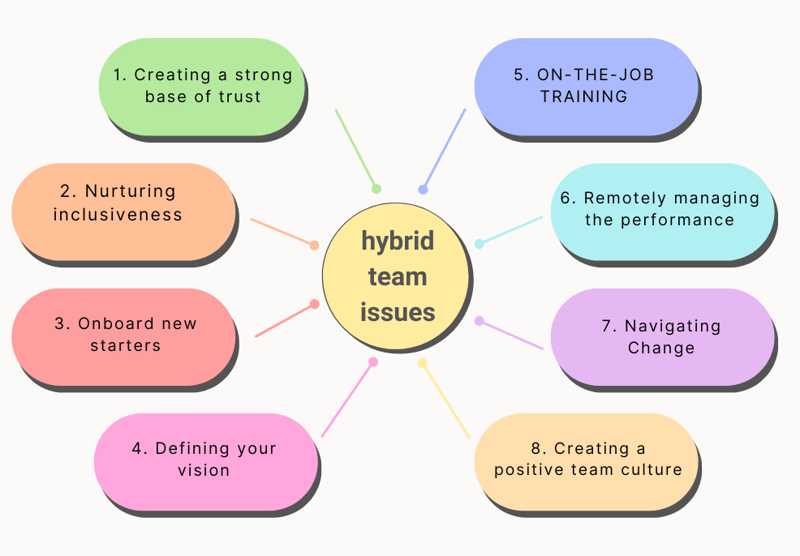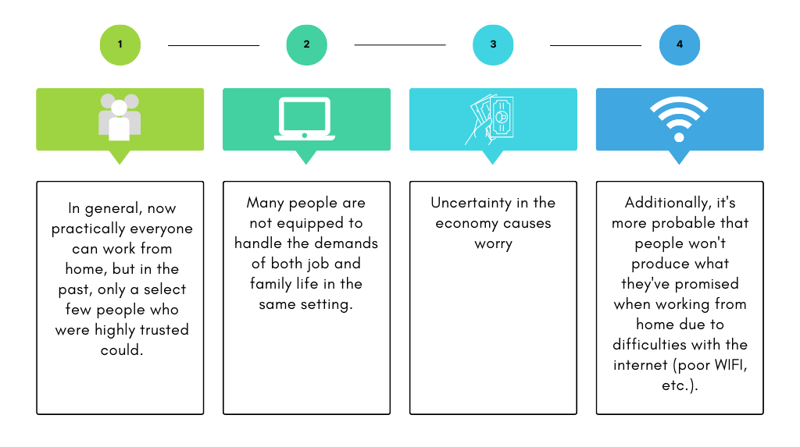Is managing hybrid teams a big challenge?
The Covid-19 pandemic was a disruptive time that many of us did not experience like that before. It seems that change is always present and at that time hybrid working has become a new norm.
The team is collaborating remotely and across sites, but the novelty here is the importance of change. Colleagues who used to work almost face-to-face now are employed with a mixture of working in the home and office. Indeed, according to LinkedIn, 87% of employees will want to work from home most of the time. It means that is a complex challenge for managers, who are responsible for managing distributed teams across multiple geographies.
There is a fact that before the Covid-19 pandemic, hybrid working did not work for everyone, and the problem scope becomes clearer. While you cannot control the change, you can manage how you utilize it in a way that is good for you, surveying the above points and guiding the team to sustainable performance. It is understandable that you may desire more useful guidance so that you can develop and become stronger. I intend to do that in a series of posts, with each post concluding with practical actions that you may consider helping your team and yourself.

The hybrid challenges
To effectively manage a hybrid workforce, we believe that managers must be confident and knowledgeable in handling eight issues.
1. Creating a strong base of trust
According to Mortensen and Gardner, there are four reasons why hybrid working undermines trust.
The psychological difficulty of interpersonal communication is increased by this erosion of trust, which makes it more difficult for managers and teams to come to an understanding.
Anxieties
“The thought of commuting again fills me with fear and dread,” is the Guardian headline that quotes a London Commuter. People worry about sacrificing the time they spend with their families, exercising, and sleeping since they no longer have to commute.
According to McKinsey research, 47% of coworkers are concerned about the lack of a clear vision for work in the post-pandemic era.
Our experience working with managers who lead teams in a hybrid workplace has shown us that people often ponder on their purpose, reevaluate their career choices, and are acutely conscious of feeling overloaded.


























